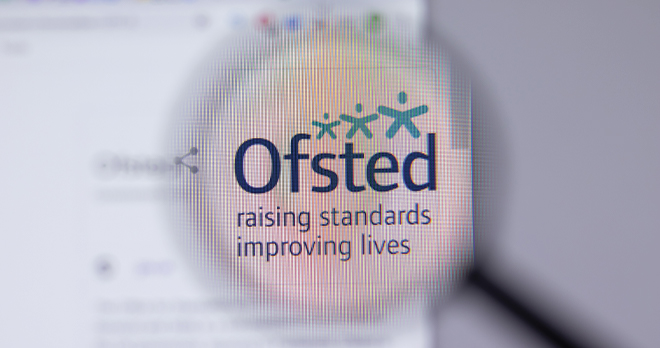What have we seen from Ofsted so far in 2024?

So far, 2024 has been a busy year for Ofsted. The year started with Ofsted publishing its response to the Coroner’s Prevention of Future Deaths (“PFD”) report in January 2024, following the inquest into the death of headteacher Ruth Perry. Ofsted’s response addressed each of the recommendations made by the Coroner and set out its commitment to making improvements. As part of this, Ofsted launched its ‘Big Listen’ consultation in order to gain feedback from stakeholders in relation to how it operates as a regulator.
Ofsted has also recently published its updated guidance on complaints and its policy paper on its approach to Artificial Intelligence (“AI”). This article sets out what we have seen from Ofsted to date and what it means for providers.
Ofsted’s complaint process
On 5 April 2024, Ofsted published its updated guidance on submitting a complaint about an inspection, regulatory event or incident involving Ofsted. The guidance sets out two processes in which to submit a complaint to Ofsted (depending on the date of the event) as follows:
- If the event happened on or before 4 April 2024
- If the event happened after 4 April 2024
For complaints arising from inspections or events post 4 April 2024, Ofsted has stated that it expects providers to raise concerns as soon as they arise and directly with the individuals involved. An example of this is raising a concern with the lead inspector during an on-site inspection. If it is not possible to resolve concerns with the lead inspector, senior leaders can telephone Ofsted either during an inspection or the next working day to speak with a senior inspector.
Previously, providers could submit a factual accuracy check (“FAC”) to Ofsted relating to all matters and if the provider was unhappy with Ofsted’s response or the amends made to the inspection report, the provider could then submit a formal complaint to Ofsted. A FAC and complaint were two separate processes and one could follow after the other.
Ofsted’s new guidance states that, “…If you have previously chosen to highlight minor points of clarity or factual accuracy when you received your draft inspection report, we will not normally accept any formal complaint or challenge later.” In practice this means that providers can either submit a FAC response or they can submit a formal complaint. As a public body, Ofsted has a duty to exercise its discretion when applying its guidance. Therefore, although Ofsted states that it won’t “normally” accept a formal complaint or challenge at a later stage, each case turns on its own facts and there might be arguments that can be made in order for a complaint to be considered at a later stage. If you are provider who needs assistance in relation to a FAC response or complaint, our regulatory team at RWK Goodman can help with this.
We do not currently know what Ofsted means in terms of “minor points of clarity or factual accuracy”. Ofsted has not yet published any guidance on this. Therefore, it is not clear at this stage whether it is best for providers to submit a FAC response or a complaint.
Ofsted's approach to Artificial Intelligence
On 24 April 2024, Ofsted published a policy paper in relation to how it will use AI and its position in relation to the use of AI by providers.
Ofsted’s position is that it supports innovation and the use of AI where it improves the education and care of children as it recognises that these tools can help providers to make better-informed decisions, reduce workload and lead to innovative ways of working.
Ofsted has said that it will consider a provider’s use of AI and its impact on children by the effect that it has on the criteria set out within its inspection frameworks. Importantly though, Ofsted will not directly inspect the quality of AI tools. This means that providers are responsible for ensuring that the use of AI does not have a detrimental impact on the quality of their provision or decisions they take.
Any providers who use AI within their organisation should ensure that they have robust policies and procedures in place in relation to its use. Policies and procedures should also set out what steps they should take to mitigate risks. As with all policies, staff need to receive appropriate training and support in order to understand and comply with them.
Conclusion
It is likely that we will see more from Ofsted over the coming months and it will be interesting to see how Ofsted responds to the ‘Big Listen’ consultation and how this shapes its future regulatory approach.
Providers will also want to see how Ofsted’s complaints process works in practice and it is hoped that Ofsted will publish guidance in relation to what exactly is meant by “minor points” of factual accuracy.
If you are a provider who is experiencing any regulatory issues with Ofsted, our lawyers at RWK Goodman can assist with this.
For further information, call:
Read more articles from our Health & Social Care team:
View more articles related to Health and Social Care





